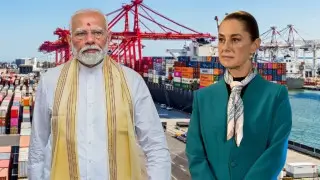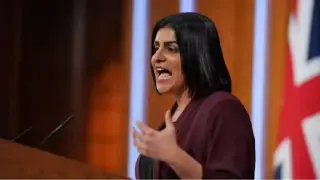
ANI
New Delhi: In the midst of strained India-Canada relations, Foreign Minister S Jaishankar engaged in a "frank" discussion with his Canadian counterpart Melanie Joly regarding the current state of bilateral ties. The meeting, which took place amid lingering tensions sparked by Canadian PM Justin Trudeau's accusations of Indian involvement in the killing of a Sikh separatist, marks the first officially confirmed interaction between the two leaders since Trudeau's allegations in the Canadian Parliament last September.
Jaishankar reiterated India's concerns regarding the anti-India activities of Khalistan separatists in Canada and the persistent threat posed by terrorism and extremism. Indian authorities have repeatedly emphasized that Ottawa has allowed these threats to go unchecked. Although no official readout of the meeting was provided by either side, Joly acknowledged in a post on X that they had candid discussions.
India's decision not to join the Canadian probe into the killing of Khalistan leader Hardeep Singh Nijjar stems from Ottawa's reluctance or inability to share any evidence with Indian authorities. Joly also mentioned discussing "Russia's illegal invasion of Ukraine" during the meeting. Despite claims by outgoing Canadian NSA Jody Thomas suggesting India's cooperation with the probe, Indian high commissioner Sanjay Verma asserted that for India to cooperate, Canadian authorities must first provide "specific and relevant" evidence.
A Canadian minister admitted during a Parliamentary hearing on the case that the concerns raised by Canada with India are based on allegations, as the probe is ongoing. Canada maintains that with progress in investigations, its police will be able to share information for India's consideration.
Trudeau's decision to present the "credible allegations" to Parliament just before the story was leaked to the Canadian media raised questions. The minister defended Trudeau's actions, stating that they were meant to address the concerns of the Canadian public and reassure them about the government's approach to addressing the issue. The decision to go to the House of Commons aimed to provide clarity and transparency about the government's involvement in the matter.
The allegations and subsequent discussions underscore the complexities and sensitivities surrounding India-Canada relations, especially concerning issues of security, terrorism, and bilateral cooperation. As both countries navigate through these challenges, transparency, cooperation, and evidence-based dialogue remain essential for fostering mutual understanding and trust.













Copyright © 2025 Top Indian News
